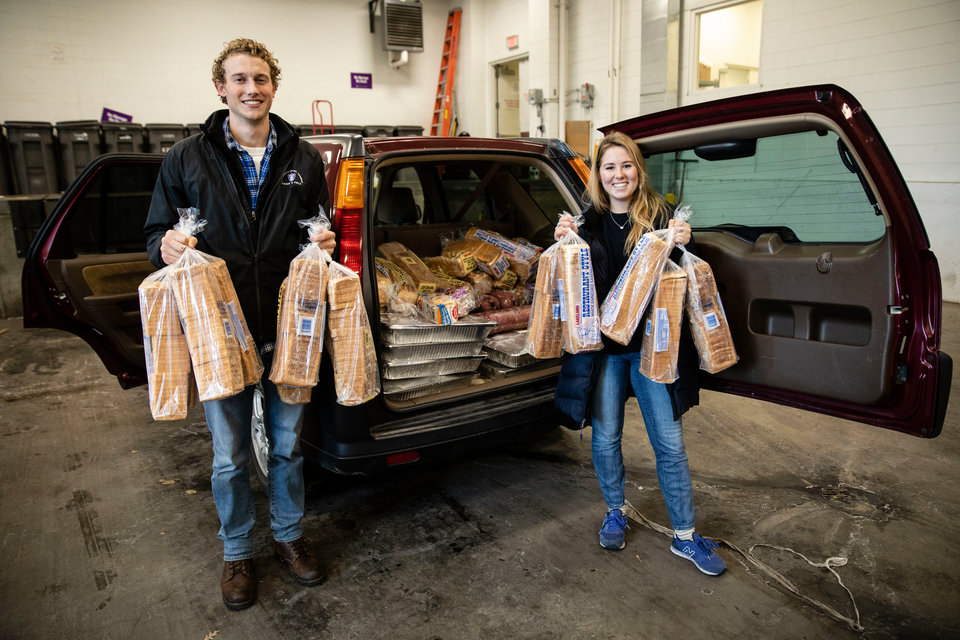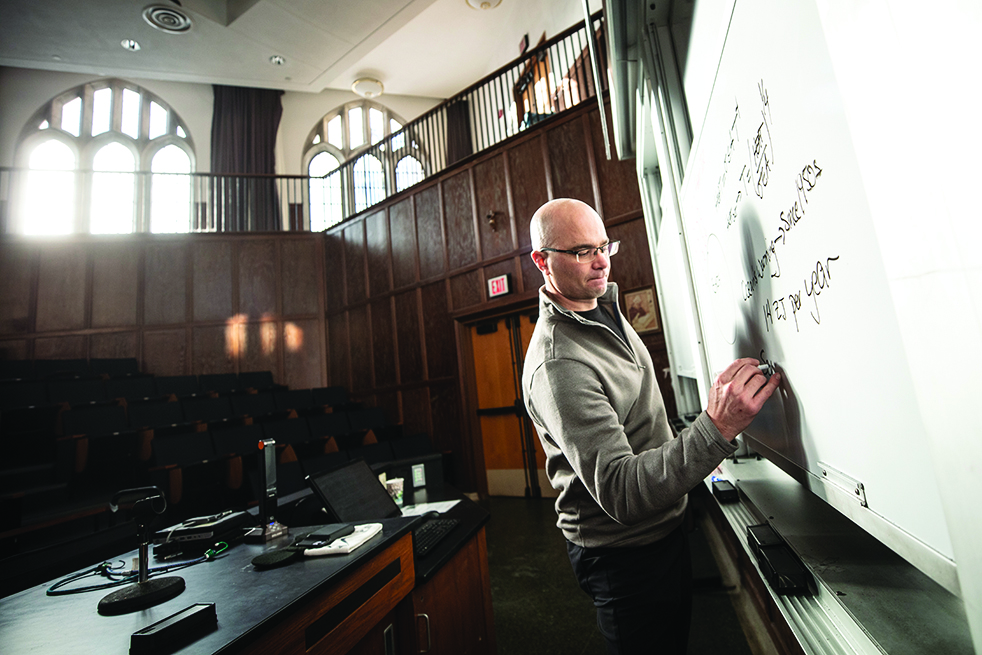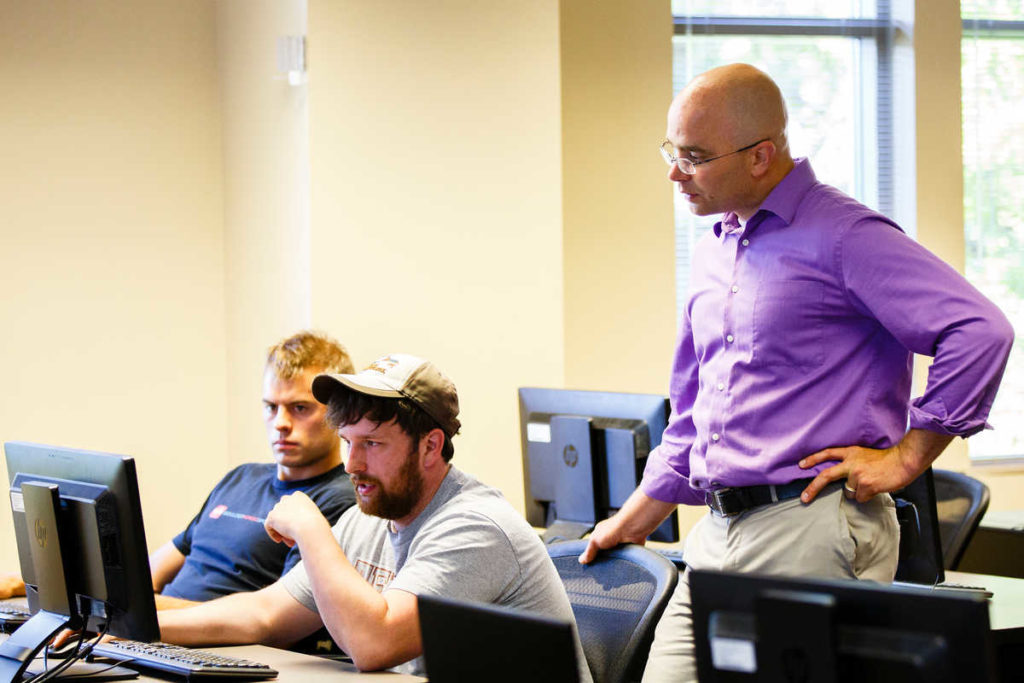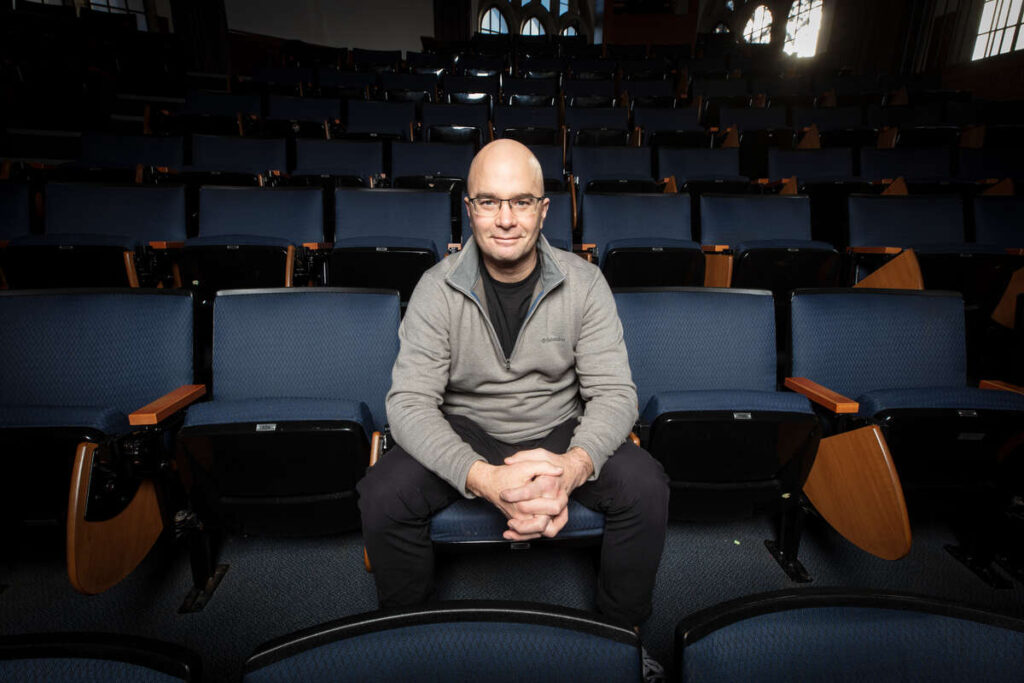Have you ever wondered where food from The View goes if it doesn’t end up at a serving station? Hannah Wallace, a senior environmental science and biology major, can answer that question.
Wallace runs the St. Thomas chapter of the Food Recovery Network, a nationwide student movement that works to reduce the amount of food waste at colleges and universities. The Food Recovery Network – FRN for short – takes unused food from dining service locations like The View and distributes it to local charities.
Unused food consists of food that was prepared to be placed at serving stations – meaning it had been cooked entirely – but did not need to be served. This food is stored in the freezer until Wallace and other Tommie volunteers collect the food and drive it to the Catholic Charities Distribution Center. Catholic Charities then distributes it to food shelves in the Twin Cities, such as the Higher Ground Shelter in Minneapolis.
For Wallace, the FRN is one step toward solving a much larger problem.
“We are wasting so much food [in America]," Wallace said. "And yet, at the same time, one in six Americans are food insecure. So it’s like, ‘How can I bridge that gap?’ And if this is the solution, then people get amped up about it.”

Eric Udermann and Hannah Wallace weigh trays of leftover food on November 12, 2018 in the Anderson Student Center in St. Paul. Hannah Wallace collects leftover food from the View and brings it to a central receiving area as part of the Food Recovery Network.
Education – and progress
One sign of the FRN’s dedication is the decreasing numbers: Last year, the FRN recovered 6,010 pounds of food. Compare that to the year before, when more than 8,000 pounds of food had to be recovered, and the progress is evident.
Angela Hasouris, assistant director of residential dining, serves as an adviser for the FRN and credits the FRN’s development to student involvement.
“Awareness is a huge part of it,” Hasouris said. “And that’s why I think that education piece is so important in terms of getting more people.”
Both Hasouris and Wallace are keen on connecting St. Thomas students with the FRN. Wallace is heavily involved with the Sustainability Club, and sees the FRN as another avenue for continuing to create sustainable practices at St. Thomas.
“I’m lucky enough to have the opportunity to do these things for other people,” Wallace said. “I have the opportunity to try to buy local foods, and to try to be self-conscious of how I am being sustainable. … Sustainability, I think, has always been in the background of people’s minds. … So I think that getting people excited about it – and myself being excited about it – drives me to be more sustainable and to care about sustainability.”
Bigger sustainability picture
Wallace is also a student representative on St. Thomas’ Sustainability Council. One of her goals is to foster greater campus engagement with sustainability, something the council is also working toward. St. Thomas’ ability to focus on issues like sustainability is a significant factor in Wallace’s eyes when it comes to raising awareness for FRN.
“I think St. Thomas is special in the way that it is a small private school, so we are able to do these awesome things like food recovery,” Wallace said. “As a college student, I have a lot going on, like every college student does. So that the faculty is willing to be there for us – and Sustainability Council, that too – they’re all good support systems on how to achieve your goals, and how to use the tools we have to do these things that get you fired up.”
And the faculty is equally excited about the efforts of the FRN. When asked about student involvement, Hasouris smiled instantly.
“There’s a core group of students, I think, at St. Thomas, that are really committed to sustainability and social justice and things like that,” Hasouris said. “I think that’s really commendable and it’s a great quality to see. And I would like to see more of the St. Thomas community be interested in sustainability because I think there’s a lot we could do as a community.”
That community is something that Wallace hasn’t taken for granted, either.
“I don’t know how I would’ve done it without people supporting me,” she said. “Obviously it’s something that I’m really interested in, but to have the support that we need to make these dreams realities is awesome. … And hopefully, someday we won’t have to have a Food Recovery Network.”
For more information on how you can volunteer with the FRN at St. Thomas, email Wallace at wall0001@stthomas.edu.







